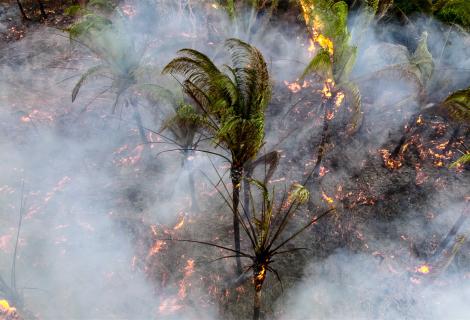
Year on year, the climate crisis continues to worsen, with disproportionately negative impacts on countries in the Global South that have contributed the least to global emissions. Within these countries, women and girls bear the brunt of these impacts. It has never been more critical for Governments to act to cut emissions and prevent further global heating and destruction. Despite this, a lack of financial sector regulation means private finance continues to flow to the problem, with billions of dollars pumped by banks into climate-harmful industries each year
Fossil fuels and industrial agriculture are the largest contributors to the climate crisis, yet the financial flows by banks to these sectors remains largely unregulated. HSBC, headquartered in the UK, was identified by ActionAid’s How the Finance Flows report (2023) as the largest overall financier of agribusiness in the Global South and the largest European financier of fossil fuels in the Global South. The context of this report is HSBC’s recent pushback on its climate target by a shocking 20 years, and a broader and dangerous context of both banks and governments rolling back on their climate commitments.
In this new report, Who pays the price? The cost of HSBC’s climate damages, ActionAid UK investigates the costs to people and the planet resulting from HSBC’s financing of these industries.